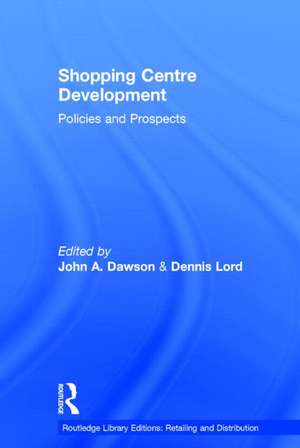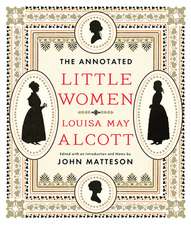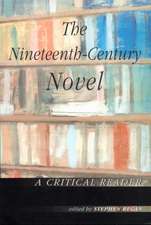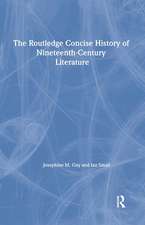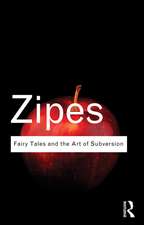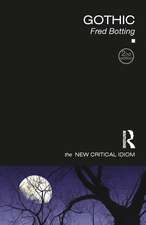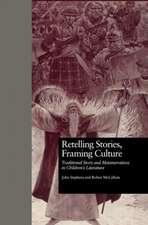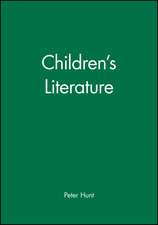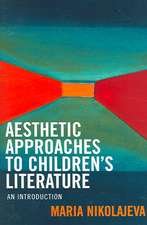Routledge Library Editions: Retailing and Distribution: Routledge Library Editions: Retailing and Distribution
Autor Variousen Limba Engleză Hardback – 9 aug 2012
Preț: 4831.79 lei
Preț vechi: 7267.59 lei
-34% Nou
Puncte Express: 7248
Preț estimativ în valută:
924.54€ • 967.90$ • 765.01£
924.54€ • 967.90$ • 765.01£
Carte tipărită la comandă
Livrare economică 05-19 aprilie
Preluare comenzi: 021 569.72.76
Specificații
ISBN-13: 9780415510325
ISBN-10: 0415510325
Pagini: 2776
Dimensiuni: 156 x 234 mm
Greutate: 5.3 kg
Ediția:1
Editura: Taylor & Francis
Colecția Routledge
Seria Routledge Library Editions: Retailing and Distribution
Locul publicării:Oxford, United Kingdom
ISBN-10: 0415510325
Pagini: 2776
Dimensiuni: 156 x 234 mm
Greutate: 5.3 kg
Ediția:1
Editura: Taylor & Francis
Colecția Routledge
Seria Routledge Library Editions: Retailing and Distribution
Locul publicării:Oxford, United Kingdom
Public țintă
General, Postgraduate, Professional, and UndergraduateDescriere
Routledge Library Editions: Retailing and Distribution brings together as one set, or individual volumes, groundbreaking retail studies from the field of human geography. Encompassing town and retail planning, marketing geography, the development of shopping centres and the rise of consumerism, this set is an opportunity to purchase previously out-of-print classics from a variety of academic imprints such as Croom Helm and Methuen.
Cuprins
1. A Changing World Edited by Suzanne McMahon, Miriam Palm and Pam Dunn 2. A Kaleidoscope of Choices Edited by Beth Holley and Mary Ann Sheble 3. Access Services in Libraries Edited by Gregg Sapp 4. Access, Resource Sharing and Collection Development Edited by Sul H. Lee 5. The Acquisitions Budget Edited by Bill Katz 6. Adaptation of Turnkey Computer Systems in Sci-Tech Libraries Edited by Ellis Mount 7. Assessment and Accountability in Reference Work Edited by Susan Griswold Blandy, Lynne M. Martin and Mary L. Strife 8. Author's Guide to Journals in Library & Information Science Edited by Norman D. Stevens and Nora B. Stevens 9. Automated Acquisitions Edited by Amy Dykeman and Bill Katz 10. Biochemistry Collections Edited by Bernard S. Schlessinger 11. Biographies of Scientists for Sci-Tech Libraries Edited by Tony Stankus 12. British University Libraries Toby Burrows 13. Budgets for Acquisitions Edited by Sul H. Lee 14. Catalysts for Change Edited by Gisela M. von Dran and Jennifer Cargill 15. The Challenge of Internet Literacy Edited by Lyn Elizabeth M. Martin 16. Collection Development in Sci-Tech Libraries Edited by Ellis Mount 17. Collection Development in the Electronic Environment Edited by Sul H. Lee 18. Collection Management in Sci-Tech Libraries Edited by Ellis Mount 19. Computer Software Cataloging Deanne Holzberlein 20. Conflicts in Reference Services Edited by Bill Katz and Ruth A. Fraley 21. Continuing Education of Reference Librarians Edited by Bill Katz 22. Cooperative Collection Development Edited by Donald B. Simpson 23. Coordinating Cooperative Collection Development Edited by Wilson Luquire 24. Creative Planning for Library Administration Edited by Kent Hendrickson 25. Creative Planning of Special Library Facilities Edited by Ellis Mount 26. Declining Acquisitions Budgets Edited by Sul H. Lee 27. Developing Library Staff for the 21st Century Edited by Maureen Sullivan 28. The Economics of Information in the Networked Environment Edited by Meredith A. Butler and Bruce R. Kingma 29. Electronic Expectations Edited by Tony Stankus 30. Electronic Information Systems in Sci-Tech Libraries Edited by Cynthia A. Steinke 31. The Electronic Journal Edited by Brian Cook 32. Electronic Resources and Collection Development Edited by Sul H. Lee 33. Emerging Patterns of Collection Development in Expanding Resource Sharing, Electronic Information and Network Environment Edited by Sul H. Lee 34. End User Searching in the Health Sciences Edited by M. Sandra Wood, Ellen Brassil Horak and Bonnie Snow 35. End-User Training for Sci-Tech Databases Edited by Ellis Mount 36. Experiences of Library Network Administrators Edited by Wilson Luquire 37. Expert Systems in Reference Services Edited by Christine Roysdon and Howard D. White 38. Finance, Budget, and Management for Reference Services Edited by Ruth A. Fraley and Bill Katz 39. Financial Planning for Libraries Murray S. Martin 40. The Future of Resource Sharing Edited by Shirley K. Baker and Mary E. Jackson 41. The Good Serials Department Edited by Peter Gellatly 42. Human Resources Management in Libraries Edited by Gisela M. Webb 43. If We Build It Edited by Suzanne McMahon, Miriam Palm and Pam Dunn 44. Implementing Online Union Lists of Serials Edited by Ruth C. Carter and James D. Hooks 45. In the Spirit of 1992 Edited by Mary M. Huston and Maureen Pastine 46. Information Brokers and Reference Services Edited by Robin Kinder and Bill Katz 47. The In-House Option T.D. Webb 48. Innovations in Planning Facilities for Sci-Tech Libraries Edited by Ellis Mount 49. International Aspects of Reference and Information Services Edited by Bill Katz and Ruth Fraley 50. Journals of the Century Edited by Tony Stankus 51. Library Crime and Security Edited by Alan Jay Lincoln and Carol Zall Lincoln 52. Library Management in the Information Technology Environment Edited by Brice G. Hobrock 53. Library Networking Edited by Wilson Luquire 54. Library Overdues Edited by Robert Burgin and Patsy Hansel 55. Library Services for Career Planning, Job Searching, and Employment Opportunities Edited by Byron Anderson 56. Management Issues in the Networking Environment Edited by Edward R. Johnson 57. Management of Federally Sponsored Libraries Edited by Charles D. Missar 58. The Management of Serials Automation Edited by Peter Gellatly 59. Monographs in Sci-Tech Libraries Edited by Ellis Mount 60. New Automation Technology for Acquisitions and Collection Development Edited by Rosann Bazirjian 61. Newspapers in the Library Edited by Lois N. Upham 62. One Hundred Years of Sci-Tech Libraries Edited by Ellis Mount 63. Operational Costs in Acquisitions Edited by James R. Coffey 64. Opportunities for Reference Services Edited by Bill Katz 65. Periodical Acquisitions and the Internet Edited by Nancy Slight-Gibney 66. Personnel Issues in Reference Services Edited by Bill Katz and Ruth A. Fraley 67. Planning Facilities for Sci-Tech Libraries Edited by Ellis Mount 68. Pricing and Costs of Monographs and Serials Edited by Sul H. Lee 69. The Public Library in the Bibliographic Network Edited by Betty J. Turock 70. The Publishing and Review of Reference Sources Edited by Bill Katz and Robin Kinder 71. Publishing in Journals on the Family Edited by Roma S. Hanks, Linda Matocha and Marvin B. Sussman 72. Reading and the Art of Librarianship John B. Nicholson, Jr. Paul Z. DuBois and Dean H. Keller, Guest Editors 73. The Reference Librarian and Implications of Mediation Edited by M. Keith Ewing and Robert Hauptman 74. Reference Services and Public Policy Edited by Richard D. Irving and Bill Katz 75. Reference Services and Technical Services Edited by Gordon Stevenson and Sally Stevenson 76. Reference Services in Archives Edited by Lucille Whalen 77. Relation of Sci-Tech Information to Environmental Studies Edited by Ellis Mount 78. The Role of Conference Literature in Sci-Tech Libraries Edited by Ellis Mount 79. Role of Maps in Sci-Tech Libraries Edited by Ellis Mount 80. Role of Serials in Sci-Tech Libraries Edited by Ellis Mount 81. Role of Technical Reports in Sci-Tech Libraries Edited by Ellis Mount 82. The Role of Trade Literature in Sci-Tech Libraries Edited by Ellis Mount 83. Role of Translations in Sci-Tech Libraries Edited by Ellis Mount 84. Science Librarianship at America's Liberal Arts Colleges Edited by Tony Stankus 85. Scientific Journals Edited by Tony Stankus 86. Scientific Journals: Issues in Library Selection and Management Edited by Tony Stankus 87. Sci-Tech Libraries of the Future Edited by Cynthia Steinke 88. Sci-Tech Libraries Serving Zoological Gardens Edited by Ellis Mount 89. Serials Cataloging Edited by Jim E. Cole and Jackie Zajanc 90. Serials Information from Publisher to User Edited by Leigh A. Chatterton and Mary Elizabeth Clack 91. Serials Librarianship in Transition Edited by Peter Gellatly 92. The Serials Partnership Edited by Patricia Ohl Rice and Joyce L. Ogburn 93. Serials to the Tenth Power Edited by Mary Ann Sheble and Beth Holley 94. Serving End-Users in Sci-Tech Libraries Edited by Ellis Mount 95. Sex Magazines in the Library Collection Edited by Peter Gellatly 96. Technology Transfer Edited by Cynthia Steinke 97. Training Issues and Strategies in Libraries Edited by Paul M. Gherman and Frances O. Painter 98. Training of Sci-Tech Librarians & Library Users Edited by Ellis Mount 99. Union Catalogues of Serials Edited by Jean I. Whiffin 100. The USMARC Format for Holdings and Locations Edited by Barry B. Baker 101. Vendors and Library Acquisitions Edited by Bill Katz 102. Weeding of Collections in Sci-Tech Libraries Edited by Ellis Mount 103. Women's Collections: Libraries, Archives, and Consciousness Edited by Suzanne Hildenbrand
Notă biografică
Various authors.
Original Series Editors:
David Canter is Emeritus Professor at The University of Liverpool, UK. Having set up the first MSc in Environmental Psychology at The University of Surrey in 1972, he went on to establish the Journal of Environmental Psychology in 1980, editing it for 20 years. Soon after he founded the International Association of People-Environment Studies (IAPS). David has published widely on many aspects of human interactions with their surroundings; his 1977 book The Psychology of Place, being one of the most cited publications in the area.
David Stea is Professor Emeritus of Geography and International Studies at Texas State University and Research Associate with the Center for Global Justice in Mexico. As Carnegie Interdisciplinary Fellow at Brown University from 1964 to 1966, he developed the new field of Environmental Psychology and the related study of spatial and geographic cognition. David is a member of the editorial boards of a number of journals, the co-author or co-editor of several books and author of some 150 articles and book chapters on various subjects, including sustainable development and environmental issues in Latin America. In 1987 he was nominated for the Right Livelihood Prize (also known as the “alternative Nobel”) for his international work with indigenous peoples.
Original Series Editors:
David Canter is Emeritus Professor at The University of Liverpool, UK. Having set up the first MSc in Environmental Psychology at The University of Surrey in 1972, he went on to establish the Journal of Environmental Psychology in 1980, editing it for 20 years. Soon after he founded the International Association of People-Environment Studies (IAPS). David has published widely on many aspects of human interactions with their surroundings; his 1977 book The Psychology of Place, being one of the most cited publications in the area.
David Stea is Professor Emeritus of Geography and International Studies at Texas State University and Research Associate with the Center for Global Justice in Mexico. As Carnegie Interdisciplinary Fellow at Brown University from 1964 to 1966, he developed the new field of Environmental Psychology and the related study of spatial and geographic cognition. David is a member of the editorial boards of a number of journals, the co-author or co-editor of several books and author of some 150 articles and book chapters on various subjects, including sustainable development and environmental issues in Latin America. In 1987 he was nominated for the Right Livelihood Prize (also known as the “alternative Nobel”) for his international work with indigenous peoples.
Recenzii
“The timely re-issue of the prescient Ethnoscapes series provides an invaluable contribution to current concerns about built and natural environments. The breadth of coverage of these books, includes public participation in environmental modifications, the impact of housing design on the quality of life, cross-cultural comparisons of placemaking, and the role of building aesthetics on well-being, across many countries and contexts adds up to a treasure trove of innovative research. Now more than ever we need the benefit of the insights and findings of these scholars and professional (many of course who are both) who, over three decades, have studied crucial aspects of interactions between people and their surroundings.”
Ricardo García Mira, Professor of Social Psychology, University of A Coruna, Galicia, Spain. Former Spanish MP.
“The reissued volumes in the Ethnoscapes series were ground- breaking when they first appeared and remain fresh today. These books are essential for understanding how design and the use of space has cultural and human meaning that “artificial intelligence” could never achieve. They offer a vital and timely antidote to mind-numbing apology for the appropriation of civic space and corporate reproduction of McMansions and shopping malls.”
Ben Wisner, Honorary Visiting Professor, University College London, UK.
“The physical aspects of our wonderfully complex world combine with social and psychological factors, to give a myriad of joys and sorrows accompanying our lifeworld activities. To make existence manageable, we need to find order within such chaos. As researchers of all types, but especially social scientists, we are driven to identify networks of causes and effects. This series provides excellent examples of such writing, concerning natural and built environments, from a host of scholars, representing a range of disciplines.”
Andrew Turk, Adjunct Associate Professor, Murdoch University, Western Australia.
“People interested and concerned about how we are interacting with and shaping our built and natural environments will find the insights and findings in this re-issued Ethnoscapes series of great value. Over more than 30 years this accumulated cornucopia of research reveals how important it is to understand the meanings and significance of many aspects of human- environment transactions. These include studies of user involvement in design, with its implications for place-making, as well as crucial explorations of the meaning of home and the role of environmental aesthetics for our wellbeing. Every volume opens new doors, often being the forerunners to major areas of study.”
Arza Churchman, Professor Emerita at Technion- Israel Institute of Technology, Haifa, Israel.
“The re-issue of the Ethnoscapes series provides everyone who cares about human-environment studies a wonderful opportunity to re-acquaint themselves with many groundbreaking efforts in the field. The series provides a wide range of explorations by researchers who have helped to make sense of persons in interaction with their surroundings, and contributed to inspired placemaking”.
Robert Gifford, Professor of Psychology and Environmental Studies, University of Victoria, British Columbia, Canada.
Ricardo García Mira, Professor of Social Psychology, University of A Coruna, Galicia, Spain. Former Spanish MP.
“The reissued volumes in the Ethnoscapes series were ground- breaking when they first appeared and remain fresh today. These books are essential for understanding how design and the use of space has cultural and human meaning that “artificial intelligence” could never achieve. They offer a vital and timely antidote to mind-numbing apology for the appropriation of civic space and corporate reproduction of McMansions and shopping malls.”
Ben Wisner, Honorary Visiting Professor, University College London, UK.
“The physical aspects of our wonderfully complex world combine with social and psychological factors, to give a myriad of joys and sorrows accompanying our lifeworld activities. To make existence manageable, we need to find order within such chaos. As researchers of all types, but especially social scientists, we are driven to identify networks of causes and effects. This series provides excellent examples of such writing, concerning natural and built environments, from a host of scholars, representing a range of disciplines.”
Andrew Turk, Adjunct Associate Professor, Murdoch University, Western Australia.
“People interested and concerned about how we are interacting with and shaping our built and natural environments will find the insights and findings in this re-issued Ethnoscapes series of great value. Over more than 30 years this accumulated cornucopia of research reveals how important it is to understand the meanings and significance of many aspects of human- environment transactions. These include studies of user involvement in design, with its implications for place-making, as well as crucial explorations of the meaning of home and the role of environmental aesthetics for our wellbeing. Every volume opens new doors, often being the forerunners to major areas of study.”
Arza Churchman, Professor Emerita at Technion- Israel Institute of Technology, Haifa, Israel.
“The re-issue of the Ethnoscapes series provides everyone who cares about human-environment studies a wonderful opportunity to re-acquaint themselves with many groundbreaking efforts in the field. The series provides a wide range of explorations by researchers who have helped to make sense of persons in interaction with their surroundings, and contributed to inspired placemaking”.
Robert Gifford, Professor of Psychology and Environmental Studies, University of Victoria, British Columbia, Canada.
